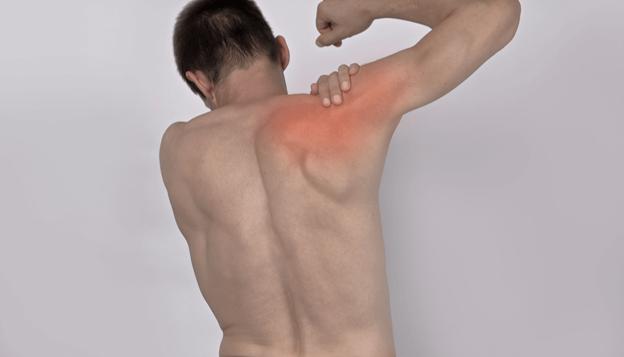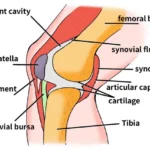Introduction
Arm weakness can be a distressing symptom, affecting your ability to perform everyday tasks and potentially signaling underlying health issues. This article explores the common causes of arm weakness, how to diagnose these conditions, and effective strategies for overcoming this debilitating symptom.
Common Causes of Arm Weakness
Nerve Compression:
- Pinched Nerve: A common cause of arm weakness, especially when associated with neck pain. This often results from conditions like herniated discs or spinal stenosis, which compress the nerves that supply the arm.
- Carpal Tunnel Syndrome: Compression of the median nerve at the wrist, leading to weakness and tingling in the hand and forearm.
Muscle-Related Issues:
- Muscle Strain: Overuse or injury to the muscles can cause localized weakness in the arm. This is often due to repetitive activities or sudden physical exertion.
- Muscle Atrophy: Lack of use, nerve damage, or certain diseases can lead to muscle wasting, which in turn causes weakness.
Neurological Disorders:
- Stroke: A sudden loss of blood flow to the brain can cause arm weakness or paralysis on one side of the body.
- Multiple Sclerosis: This autoimmune condition can cause widespread muscle weakness, including in the arms, due to nerve damage.
- Peripheral Neuropathy: Damage to peripheral nerves, often due to diabetes, can lead to arm weakness and numbness.
Cardiovascular Causes:
- Heart Attack: Sometimes, arm weakness, particularly in the left arm, can be an early sign of a heart attack. This is due to the referred pain from the heart muscle.
Chronic Conditions:
- Arthritis: Rheumatoid arthritis or osteoarthritis in the shoulder or elbow joints can reduce strength and flexibility, leading to arm weakness.
- Chronic Fatigue Syndrome: This condition can cause pervasive fatigue and muscle weakness, including in the arms.
Diagnosing Arm Weakness
Proper diagnosis involves a combination of medical history, physical examination, and diagnostic tests:
- Medical History: Discussing symptoms, duration, and activities that exacerbate or relieve the weakness.
- Physical Examination: Assessing muscle strength, reflexes, and sensory function.
- Imaging Tests: X-rays, MRIs, or CT scans can help identify structural issues like herniated discs or arthritis.
- Nerve Conduction Studies and EMG: These tests measure electrical activity in muscles and nerves to diagnose conditions like carpal tunnel syndrome or peripheral neuropathy.
Treatment Options
Physical Therapy:
- Strengthening and stretching exercises tailored to the underlying cause of weakness.
- Nerve Gliding Exercises: Particularly useful for conditions like carpal tunnel syndrome, these exercises help improve nerve mobility.
Medications:
- NSAIDs: Used to reduce inflammation and pain in conditions like arthritis or muscle strain.
- Corticosteroids: For autoimmune conditions that cause inflammation and nerve compression.
- Antiseizure Medications: Sometimes prescribed for neuropathic pain.
Lifestyle Modifications:
- Ergonomic Adjustments: Proper posture and workstation setup can reduce strain on the arm muscles and nerves.
- Weight Management: Reducing body weight can decrease the stress on joints and muscles.
Surgical Interventions:
- Decompression Surgery: For severe cases of nerve compression, such as carpal tunnel release or spinal decompression.
- Joint Replacement: In severe cases of arthritis, replacing the affected joint may restore function and strength.
Assistive Devices:
- Braces and Splints: Provide support and stability to weakened joints or muscles.
Preventive Measures
- Regular Exercise: Engaging in regular physical activity to maintain muscle strength and flexibility.
- Healthy Diet: A balanced diet rich in essential nutrients supports muscle health.
- Proper Posture: Maintaining good posture during activities can prevent unnecessary strain on the arms.
- Stress Management: Techniques like meditation or yoga can help reduce stress-related muscle tension.
Frequently Asked Questions (FAQs)
- What should I do if I experience sudden arm weakness?
Sudden arm weakness, especially if accompanied by chest pain or shortness of breath, could indicate a serious condition like a stroke or heart attack. Seek emergency medical attention immediately. - Can arm weakness be permanent?
It depends on the cause. Some conditions, like nerve damage from a stroke or severe neuropathy, can lead to permanent weakness, while others, like muscle strain or minor nerve compression, are usually reversible with treatment. - How long does it take to recover from arm weakness?
Recovery time varies widely depending on the underlying cause. Muscle strains may resolve in a few weeks, while recovery from a stroke or severe nerve compression may take months or even longer. - Can physical therapy help with arm weakness?
Yes, physical therapy is one of the most effective treatments for arm weakness, especially when caused by nerve compression, muscle strain, or recovery from surgery. - Is it safe to exercise with arm weakness?
It’s essential to consult with a healthcare provider before starting any exercise regimen if you have arm weakness. Physical therapy exercises specifically designed for your condition are usually the safest and most effective.
Conclusion
Arm weakness is a symptom with various potential causes, ranging from minor muscle strain to serious neurological conditions. Early diagnosis and targeted treatment are crucial for managing the condition and preventing long-term disability. By understanding the causes and treatments of arm weakness, you can take proactive steps to improve your arm strength and overall quality of life.





